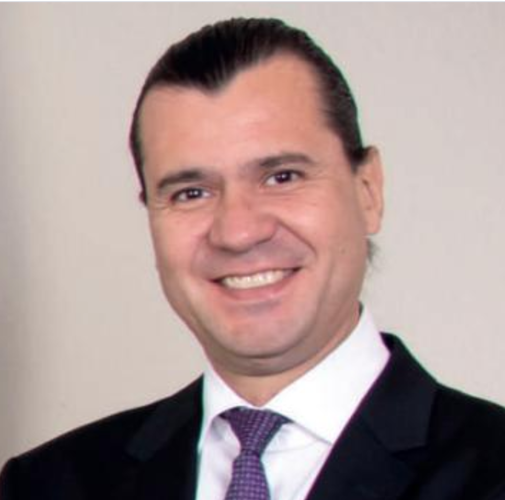ENGLISH VERSION BELOW
El papel del liderazgo femenino es incuestionable hoy en día: en la ciencia, el deporte, las artes, en el plano político hay grandes líderes a nivel mundial, en la vida profesional o militar.
Sin embargo, el mes de marzo y el Día Internacional de la Mujer nos recordaron que, para llegar a esos resultados, han tenido que pasar siglos. Que ha habido mujeres que abrieron camino, sociedades que han evolucionado, hombres que las han apoyado -y muchos más que se han opuesto a ellas-, movimientos que les han dado visibilidad, derechos, voz y preponderancia. Pero aún hoy en día queda camino por recorrer, mentalidades por cambiar y paradigmas por romper.
En siglos pasados, monarcas como Isabel I de Inglaterra y Catalina la Grande de Rusia fueron consideradas mujeres fuertes, con autoridad y mando, pero también como raras excepciones. En contraste, hoy mujeres como Angela Merkel (Alemania), Jacinda Ardern (Nueva Zelanda) o Katrín Jakobsdóttir (Islandia) dirigen a sus países con éxito en temas económicos -o de salud durante la actual pandemia- y han mostrado su gran capacidad. También los Estados Unidos tienen por primera vez en Kamala Harris a una vicepresidenta.
En el campo de la investigación, figuras como Marie Curie probaron que las ciencias no conocen de género y que el papel de una científica es tan relevante como el de sus contrapartes masculinas. Hoy muchas mujeres lo demuestran diariamente en sus respectivas áreas. Valentina Tereshkova o Sally Ride mostraron que una mujer puede llegar lejos, incluso al espacio …y con ello abrieron la puerta para más astronautas mujeres.
Este artículo se actualiza constantemente para mantenerte al tanto de las novedades en el proceso de vacunación contra el COVID-19 en el área de Tucsón.
En el deporte, las tenistas profesionales exigieron igualdad y lograron que su recompensa económica sea la misma que reciben los tenistas hombres en muchos torneos de Grand Slam. El Consejo Internacional del Cricket redujo considerablemente la disparidad de ganancias entre campeones y campeonas mundiales de dicho juego. La liga profesional de hockey sobre césped de Europa da igual salario a jugadoras y jugadores.
Aunque estamos lejos de las épocas en que Kathrine Switzer rompió paradigmas al completar un maratón, aún son pocos los deportes profesionales igualitarios. Los casos antes mencionados son la excepción, pues la falta de visibilidad de las competencias femeniles lleva a su vez a un menor interés por parte de patrocinadores y, consigo, a menores ingresos y a un menor sueldo para las atletas de alto rendimiento cuyo esfuerzo es incluso mayor al de deportistas hombres. Las disciplinas mixtas, no son tales, ¿cuántas mujeres compiten profesionalmente en el automovilismo, por ejemplo?
La brecha entre mujeres y hombres es aún visible, y hay muchos retos por delante para lograr una igualdad verdadera, eliminar la discriminación de género y enterrar las masculinidades tóxicas.
Lo más importante es recordar que nada ha cambiado todavía. Debemos evitar confusión y engaños, para que la comunidad indocumentada no gaste dinero innecesario y procure servicios y asesoría autorizados.
No obstante, en la actualidad hay cada vez más mujeres competitivas en sectores que anteriormente eran dominados por hombres. Un ejemplo de ello es la industria cervecera y el creciente auge de la cerveza artesanal. En Tucson, dicha actividad cuenta con una comunidad vibrante y activa de mujeres profesionales; en México, las damas no son la excepción y cada vez se abren más camino en esa industria.
En 2019, mujeres cerveceras de México y del sur de Arizona se unieron para crear la primera cerveza binacional hecha exclusivamente por mujeres, con participantes de más de 15 compañías de ambos lados de la frontera. “Las Hermanas” tuvo una producción limitada, realizada en Tucson (en Borderlands Brewing Company) y en Monterrey (en Cervecería Rrëy). Ésta fue presentada en enero de 2020 y dio mayor visibilidad a las profesionistas de este rubro, con el apoyo del Consulado de México y de Visit Tucson.
Aunque la pandemia actual retrasó significativamente una segunda edición en 2020, no quitamos el dedo del renglón para una segunda edición más tarde este mismo año. Por ello, también tenemos en puerta la organización de un panel en línea con mujeres cerveceras de Tucson y Mexico, para que hablen de su papel, su relevancia y los retos que aún enfrentan en dicha industria. Estén atentos a nuestras redes sociales.
Terminemos pues el mes de marzo conmemorando a la mujer y recordando que, si bien hoy no se cuestiona su derecho al voto o al trabajo, hacen falta esfuerzos para lograr un mundo más justo e igualitario.
ENGLISH VERSION
March is women’s month
Women’s leadership is undisputable today: their role in science, in sports, in arts, in politics, professionally or even in the army.
However, March and International Women’s Day reminded us that many centuries went by in order to achieve those goals. That other women opened the way, that societies evolved, that men supported them -and many more opposed them-, that movements gave them visibility, rights, a voice and more weight. But even today there is still a long road ahead, there are mentalities to change and paradigms to break.
In past centuries, monarchs like Elizabeth I in England or Catherine the Great in Russia were considered strong women through their leadership and authority, but also an exception to male dominance. In contrast, today, women like Angela Merkel (Germany), Jacinda Ardern (New Zealand) or Katrín Jakobsdóttir (Iceland) lead their countries successfully in all fields, including economics and health -especially through this pandemic-, and show what they are capable of. Even the United States have elected their first female vice-president, Mrs. Kamala Harris.
In the field of scientific research, pioneers like Marie Curie proved that sciences know no genders and that a woman scientist’s role is as important as that of her male counterparts. Nowadays, many women still prove it every day in their own fields of expertise. Valentina Tereshkova or Sally Ride showed that the sky is not the limit, but space …and they opened the way for other women astronauts.
In sports, professional female tennis players demanded equality and were successful at obtaining the same monetary prices as their male counterparts in most Grand Slam tournaments. The International Cricket Council has reduced considerably the financial disparity between men and women who become world champions, whereas the Euro (field) Hockey League introduced equal prize money for all players, male and female.
Even though we are far from the time when Kathrine Switzer broke paradigms by being the first woman to complete a Marathon, equality in professional sports is still rare. The above-mentioned cases are an exception. Given the lack of visibility for women’s competitions, potential sponsors are not so keen to invest in them. This means less revenues for the tournaments and teams and lower salaries for highly competitive sportswomen whose effort is even greater than that of sportsmen. Mixed-gender disciplines? They aren’t such! For example, how many women are there competing professionally in motor sports at the moment?
The gap between women and men is still visible, there are many challenges ahead in order to achieve real equality, to eradicate gender discrimination and to bury toxic masculinities.
Nevertheless, more and more women succeed every day in sectors that used to be largely led by men. A good example of it is the beer industry and the burgeoning micro-brewery sector. In Tucson, this particular activity employs a very vibrant and proactive community of women brewers; Mexico is no exception either and an increasing number of ladies constantly make their own way in that industry.
In 2019, women brewers from Mexico and Southern Arizona joined forces to create the first binational beer made exclusively by women, and representatives from more than 15 breweries from both sides of the border were active in it. “Las Hermanas” beer was a limited production brewed, both in Tucson (at Borderlands Brewing Company) and Monterrey (at Cervecería Rrëy). It was officially presented in January 2020 as a symbol that would also give more visibility to women in this industry. The Consulate of Mexico and Visit Tucson fully supported it!
Although the current pandemic delayed the possibility of a second edition of “Las Hermanas” in 2020, we would still be supportive of any further plans to do it later this year. This is why we are also planning on doing an on-line panel with female brewers from Tucson and Mexico, that would give them a space to talk about their role, their achievements and the challenges ahead in the beer industry. Stay tuned on our social media!
Let’s finish March honoring women, but also being aware that, even if nobody questions their right to vote or work, there are still many steps ahead to make our world a more equal place for all.









